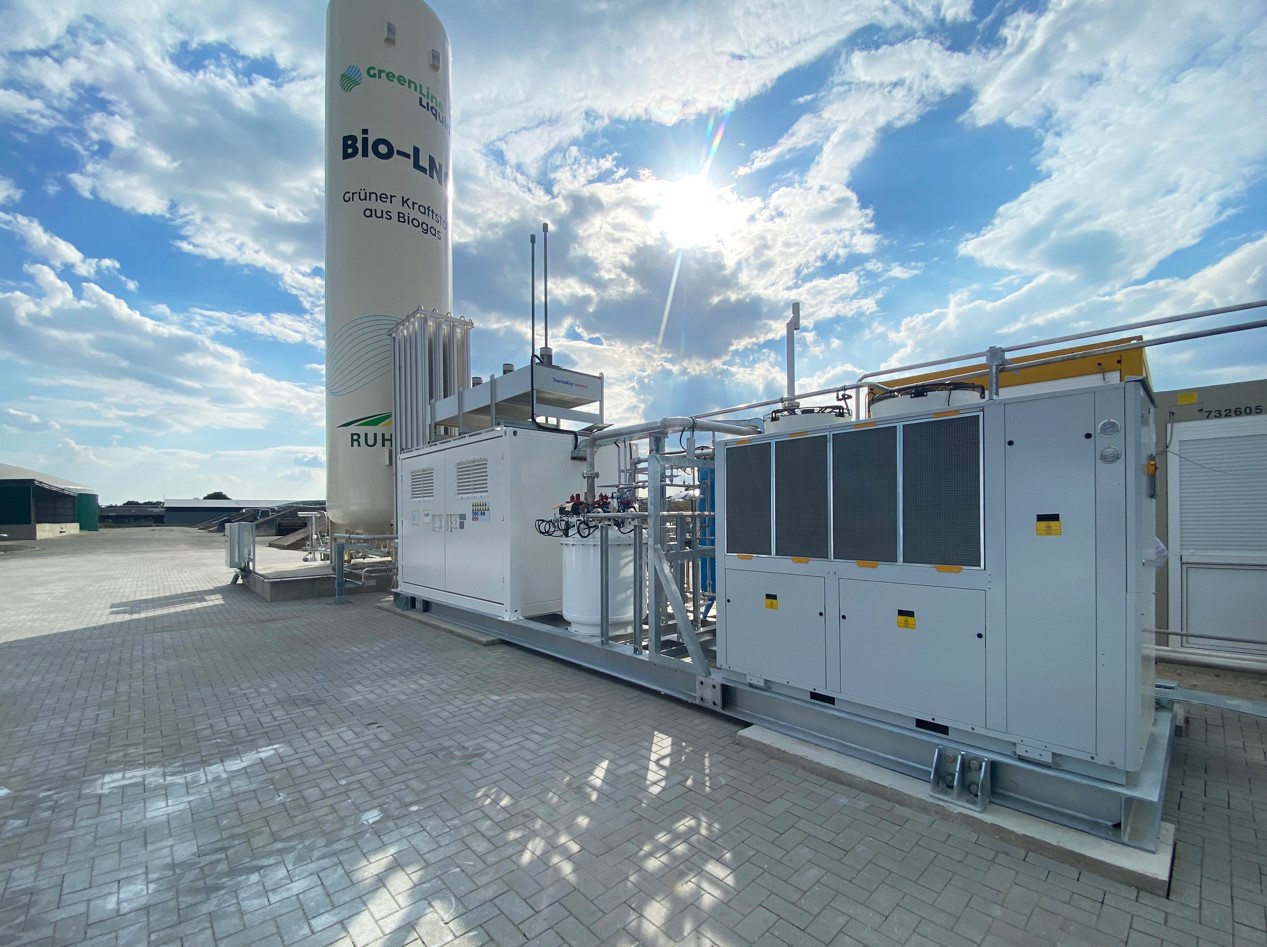Germany’s Agrarvereinigung eG Darchau and Ruhe Biogas have joined forces with Italy’s Ecospray to launch what they say is the first compact bio-LNG plant in Germany.
The small bio-LNG plant in Darchau, Lower Saxony, will liquefy biogas made from liquid manure and dung from the region and supply it to heavy-duty transport, according to a joint statement sent to LNG Prime via email.
It will have an initial capacity of 3 tons per day, replacing about 1.3 million liters of fossil diesel per year and save up to 7,000 tons of CO2, the statement said.
To compare, Shell’s Rheinland bio-LNG plant, which the firm claims will be the largest in the country when completed next year, will have a capacity of about 100,000 tons per year.
The compact 500kW plant in Darchau serves as a model for many farms throughout Germany, according to the statement.
“We could do with a lot of small, decentralized bio-LNG plants in Germany right now,” Kunibert Ruhe, board member of Agrarvereinigung eG Darchau and shareholder of Ruhe Biogas said in the statement.
“Agricultural businesses can produce biogas self-sufficiently in the form of a circular economy using residual materials from their own farms and from businesses in their region and refine it into bio-LNG,” Ruhe said.
Germany is currently in a big push to fast-track LNG imports into the country in order to cut reliance on Russian gas. The country will have at least five FSRU-based terminals in the future.
On the other side, Germany is already the leading country in Europe with 134 LNG filling station for trucks. Europe currently has in total 576 LNG filling stations and owners are increasingly offering bio-LNG at these stations, according to NGVA Europe.
More bio-LNG plants planned
In March this year, Ruhe Biogas and Ecospray joined forces to build two plants for bio-LNG production and three CO2 liquefaction systems.
Each project involves the construction of a complete system for pre-treatment, upgrading, liquefaction of biomethane and the liquefaction of CO2, with associated storage and cryogenic tank filling.
Besides this project, the duo also signed a deal for a second facility to produce eight tons per day of bio-LNG.
The plants will supply customers of Green Line Liquid Anlagenbau – an affiliated company of Ruhe Group.
Q1 Energie AG, an energy and service station firm based in Osnabrueck, has already secured the annual production of bio-LNG from the Darchau plant, the statement said.
Although trucks account for only six percent of all vehicles on German roads, they cause 30 percent of all CO2.
Fossil LNG, which is already widely used today, can also replace diesel, but only reduces emissions by up to 20 percent, the statement said.
The CO2 balance of bio-LNG, on the other hand, is even negative if the fuel is produced from agricultural waste products, it said.
“Only about 30 percent of farm manure is currently used in conventional biogas plants. If we were to use 100 percent in the future and process it into bio-LNG, we could supply about 37 percent of the truck fleet,” Ruhe said.

